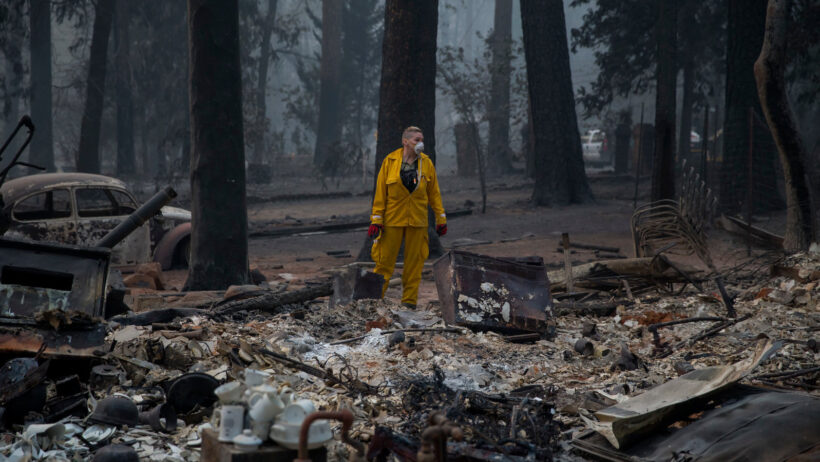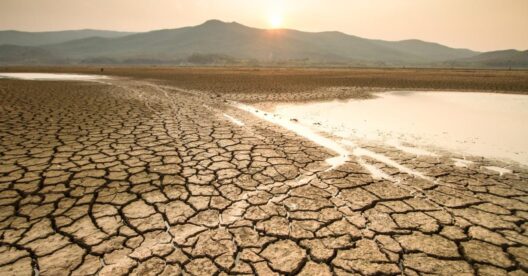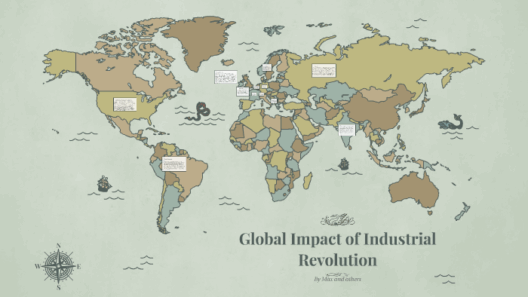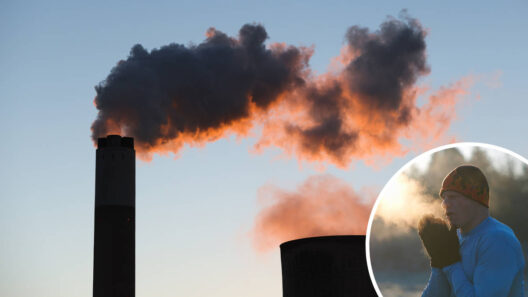As the consequences of climate change become increasingly apparent, a disturbing paradox emerges in American societal attitudes: despite rising temperatures, catastrophic storms, and unprecedented wildfires, many Americans remain bemused about the urgency of global warming. This conundrum prompts critical examination—Are Americans blind to global warming? Are they willfully ignorant, or is it a more nuanced interplay of social, economic, and psychological factors at work? The answers are multifaceted, and they weave a complex web of denial, misinformation, and apathy that shapes public perception.
A significant number of individuals in the United States profess a concern for environmental issues, with surveys indicating that record numbers of Americans express a desire for action on climate change. Yet, the paradox remains that a massive faction continues to downplay the severity of the climate crisis. This inconsistency may stem from a collective dissonance, where idealistic beliefs about environmental responsibility clash with the stark reality of complex socio-economic structures entrenched in fossil fuel dependency. The aversion to acknowledging global warming—and the steps required to mitigate it—can often be traced back to fear—the fear of change, the fear of economic loss, and the fear of an uncertain future.
One might argue that the roots of this collective ignorance run deep into the fabric of American culture. The ethos of individualism encourages a mentality where personal experiences take precedence over empirical evidence. Citizens often prioritize immediate personal experiences over long-term global phenomena. This tendency can create a blindness to the gradual yet relentless march of climatic changes. Moreover, the vast economic landscape, dominated by industries tied to fossil fuels, fosters a sense of complacency born from a dependency on these energy sources. The profitability of oil and gas companies has instilled a hesitancy to confront the socio-economic transformations required to embrace a greener economy.
Additionally, misinformation campaigns exacerbate this ignorance. Disinformation proliferates through various channels, including social media and high-profile advocacy organizations, which spread doubt about the scientific consensus on climate change. This proliferation of misleading narratives sows confusion, allowing citizens to rationalize their apathy towards global warming. The strategic dissemination of misleading information creates an environment of skepticism surrounding scientific findings, fueling public doubt rather than informing. Such tactics have successfully shifted the narrative, portraying climate action as an inconvenience or even an ideological affront rather than a necessary global endeavor.
Psychologically, the phenomenon of “bounded awareness” comes into play—a cognitive bias where individuals only focus on information that aligns with their preconceived notions or immediate interests, while ignoring broader consequences. For many, global warming tends to get relegated to the background noise of daily life. The immediate exigencies of work, family, and personal finances overshadow the far-reaching yet abstract implications of climate change. It becomes a distant concern, an issue sidelined by the pressing realities that occupy one’s daily existence. The immediacy of more tangible issues leaves little room for contemplating the gradual, creeping ramifications of a warming planet.
Furthermore, geographical disparities exacerbate this lack of awareness. Those in regions less directly impacted by extreme weather events—rural areas with lower vulnerability to flooding or coastal erosion—may remain blissfully insulated from the visceral evidence of climate change. For residents entrenched in agriculture, a dwindling water supply may signal an immediate crisis. Conversely, urban dwellers may only witness climate changes in the form of rising energy costs during increasingly hot summers. This disparity creates a cognitive disconnect; the climate crisis becomes a faceless statistic rather than a visceral, lived experience.
Even the political landscape complicates this discourse. Climate change has indeed been politicized, with factions forming that either champion bold environmental policies or staunchly oppose them. This division can stifle rational dialogue, encouraging constituents to latch onto ideological affiliations rather than scientific realities. Partisan lenses shape perceptions of climate science; thus, those influenced by a particular ideological viewpoint may dismiss legitimate evidence purely based on the source. The ramifications are dire—a society irrevocably divided in its understanding of what is arguably the most pressing issue of our time.
However, this ignorance is not insurmountable. Increasing awareness and education are crucial to reframing the narrative surrounding climate change. Programs that engage citizens with tangible experiences, such as community gardening initiatives or environmental restoration projects, can bridge the gap between knowledge and action. Emphasizing local impacts of climate change may render the issue more immediate and relatable. Involving communities in grassroots movements fosters a sense of ownership over environmental issues, encouraging active participation rather than passive acquiescence to oblivion.
Ultimately, confronting climate change demands a cultural shift—one that transcends ignorance and embraces an informed and proactive approach. The discourse should pivot from viewing environmental stewardship as an abstract concern to understanding it as a vital component of societal well-being and future viability. As awareness grows, so too does the opportunity for collective action. It is imperative to galvanize citizens, stirring them not only from their slumber of indifference but also igniting a passion for responsible stewardship of our planet.
In conclusion, ignorance poses a formidable barrier to addressing global warming. Yet, recognizing the myriad factors contributing to this blindness provides a pathway to overcome it. Americans must relinquish complacency and confront the dissonance that hinders meaningful engagement with climate realities. Only through collective acknowledgment and action can society hope to navigate the unprecedented challenges posed by climate change and promote a sustainable future.







